Kingston to feel like home territory for Alaine Chartrand
Nobody seemed more surprised than Alaine Chartrand on that November day in Moscow when she unleashed her best game to the public.
There she was in Russia, home of a busy flock of Russian women all trying to outdo the other (the vast majority of them landing triple-triples at the recent Cossack nationals). And this small-framed Canadian in Maple Leaf red won the women’s short program – in only her second senior Grand Prix event.
“So I’m leading after the short at Rostelecom Cup? #what?! #cool”, she tweeted. Her senior Grand Prix debut occurred at Skate Canada International in Kelowna, B.C., where she finished seventh, admittedly more nervous than a tightrope walker in tattered slippers. Obviously, she dealt with the nerves in Moscow.
Perhaps she had a little help. The day she left for Russia, her great grandmother died, hard for someone from such a close-knit family. Chartrand dedicated her performance to her and skated like a champ.
It also didn’t hurt that Chartrand felt relatively comfortable in Moscow, where her coach Leonid Birinberg is from. Birinberg is friendly with the mother of Evgenia Medvedeva, who just won the Junior Grand Prix Final and the bronze medal at the senior level at her national championships. Chartrand knows Medvedeva “a bit.”
In Russia, the scores spilled over Chartrand’s cup, like never before. Although she has always been a mighty little jumper first, Chartrand’s component marks in Russia all climbed above 7.00 for the first time: totalling up a record (for her) 27.68 in the short and 57.72 points in the free. Whatever she’s been working on this season with choreographer David Wilson and edge artist Gary Beacom, it’s been working.
Heading into the Canadian championships in Kingston, Ont., Chartrand carries with her a personal best short program score of 61.18, and a total score of 172.00 from the Rostelecom Cup. Her record free score of 113.05 comes from her stellar skate at the Four Continents last season, when she was only 15th after the short, and rallied to be fifth in the free, seventh overall.
Did that first-place finish in the short in Russia unsettle her for the long, where she made a few mistakes – but still roared along to take the bronze medal? No, says Chartrand. It did the opposite, taking the pressure off her from having to come from behind, as she has had to do before.
Her goals this year are realistic: finish in the top eight at Skate Canada (check) (and she more than outdid this in Moscow ); get back on the podium at the Canadian skating championships and relive or even perhaps outdo that bronze she earned two years ago; and get to the world championships in Shanghai next March. Last year she finished fifth at nationals.
The Kingston event will almost feel like home since it’s only an hour’s drive from her hometown of Prescott, Ontario. For a skater who spends her days travelling about the province, sometimes in her grandparents’ RV, to train just about everywhere, it’s an easy trip.
For Chartrand, this season has been a big step in many ways: her first year as a senior competitor on the Grand Prix scene, new tasks, new lessons, more attention to every detail. While she held onto her long program to Doctor Zhivago (appropriate for her Moscow performance), Wilson refreshed it and made it new. And she loaded all of her jump combinations into the second half, for good ammunition. She also seriously started to train a triple Axel. She does it every day, she says.
“I always wanted to be the first person to do something,” she said. She was the first Canadian woman to land a triple Lutz – triple toe loop combo at a competition and also the first to do a triple Lutz-half loop – triple Salchow, too. “It would be awesome to be the first Canadian lady to do the triple Axel,” Chartrand said. She’s stood up on some, but not on a completely rotated one yet. She’s excited about it. Needless to say, her heroes are those who push the boundaries of the sport: Midori Ito, Mao Asada, Kevin Reynolds, Yuzuru Hanyu, and Javier Fernandez.
She did attempt a triple Axel at Minto Skate in the summer, but fell. All summer she’s trained it as the first element in her long program.
She tried on two new short programs, but Raul di Blasio’s “La Leyenda del Beso” – the tragic Legend of the Kiss – won out with its sophisticated air. It has a Spanish gypsy feel, she says.
When Chartrand skates, she now fills the rink more with her presence. “I’ve definitely been working on everything: jumps, spins, stretch, stroking lessons, everything,” she said. And she’s worked with a Canadian icon, Gary Beacom. “Just neat little things to put in my programs,” she said. “Just in general to be unique, because Gary Beacom is very unique.”
She first did a seminar with Beacom, and really enjoyed it. Every few months, Beacom rolls into the Toronto area, sometimes on his motorbike. When he comes, she gets a lesson with him for an hour. “We just really thought he was amazing from the seminar that he did,” she said. “It was great to get some unique things because it seems like everyone looks the same and it’s great if you can do something special.”
The special bits? Entrances and exits from spins, footwork. “He just does things differently,” she said.
Beacom says he thinks Chartrand is very talented. “She picks things up,” he said. “It’s a pleasure to work with her. She’s pretty well-read. An excellent jumper. She spins well, and has some good footwork.” He says he’s been working on her transitions – and some creative ways to get in and out of spins. “This is something that hasn’t been explored in the world of skating,” he said.
Chartrand has done well this season, considering she wasn’t sure she’d even get one Grand Prix event. She’s glad she stayed on her feet at Skate Canada International but really, she did more than that: getting level fours for all of her elements. She’s only just begun this new chapter.


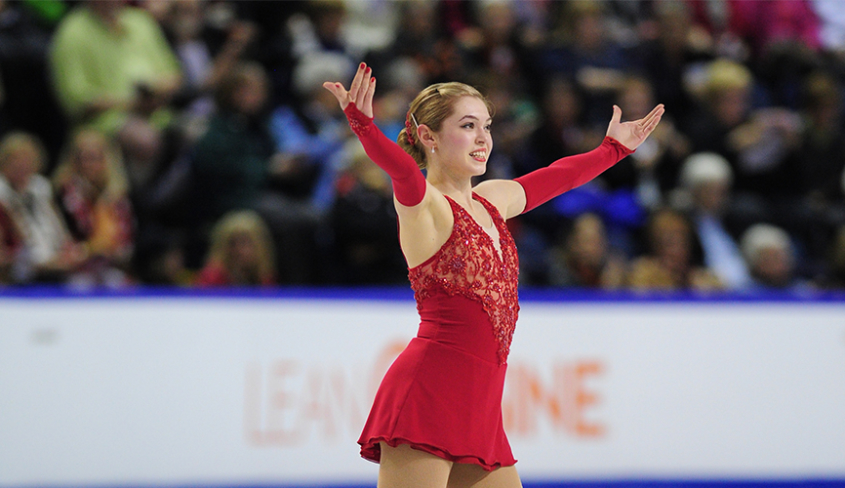
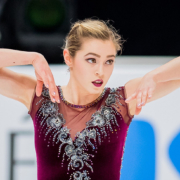
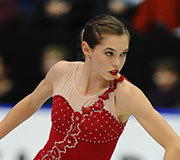
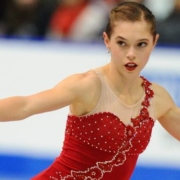
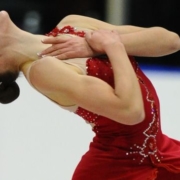
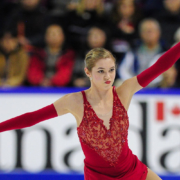
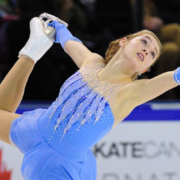
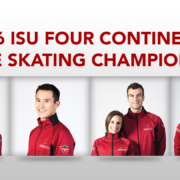
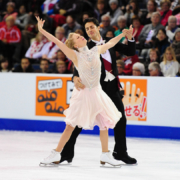


Leave a Reply
Want to join the discussion?Feel free to contribute!